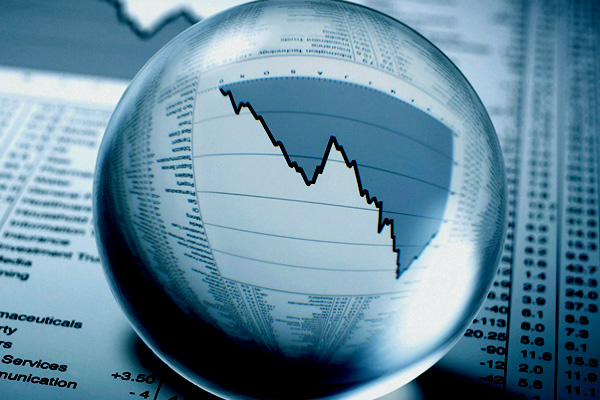Hedge funds have transformed from niche investment vehicles for the ultra-wealthy into powerful players capable of reshaping global markets. Their strategies now influence stock prices, currency flows, and even economic policies. By blending traditional research with cutting-edge technology, hedge funds are changing how investors view the stock market.
In this article, we’ll explore how hedge funds are reshaping markets, focusing especially on their stock-picking strategies. We’ll also examine the ripple effects on everyday investors and consider what the future might hold for this influential sector.
Stock Picking in a Data-Driven Era
Stock picking lies at the core of hedge fund strategies. Unlike index funds that simply mirror the market, hedge funds invest heavily in discovering mispriced opportunities. Their managers employ teams of analysts, data scientists, and strategists to examine every angle of a company’s potential.
The modern hedge fund doesn’t rely solely on financial reports. Instead, it analyzes satellite images to track shipping activity, social media sentiment to gauge consumer demand, and credit card transaction data to forecast earnings. This aggressive pursuit of information allows hedge funds to buy or short stocks before broader markets react.
When they identify undervalued companies, hedge funds pour in capital quickly, sparking price rallies. Conversely, if they expect weakness, they bet against the stock, often creating downward pressure. These bold moves don’t just influence valuations; they also shift market sentiment, drawing in retail investors who often mimic hedge fund behavior.
Read Also: UN Confirms Gaza Famine
The Competitive Edge of Hedge Funds
Hedge funds hold a unique advantage because of their flexibility. Traditional asset managers face strict regulations and limited strategies, but hedge funds can adapt quickly. They don’t just buy and hold stocks. They leverage derivatives, options, short-selling, and even global macro bets to maximize gains.
This versatility makes them both powerful and unpredictable. A hedge fund can shift billions of dollars in or out of a sector overnight, causing major price swings. For instance, if several hedge funds identify the same undervalued company, demand skyrockets, forcing prices higher. Retail investors often chase these gains, amplifying market volatility.
At the same time, hedge funds inject liquidity into markets, making it easier for other investors to trade. Regulators, however, keep a close eye on these activities to ensure they don’t destabilize financial systems.
Read Also: Las Vegas Tourist Decline
Hedge Funds as Market Trendsetters
One of the most fascinating aspects of hedge funds is their ability to set trends. Retail investors, financial media, and even institutional players closely monitor hedge fund moves. Quarterly disclosures often reveal where top funds allocate their money, sparking waves of copycat investing.
For example, when a major hedge fund discloses a position in a tech company, smaller investors rush in, believing that insiders must see hidden value. This pattern reinforces hedge funds’ influence, making them trendsetters in global finance.
Yet, timing remains a challenge for outsiders. By the time hedge fund positions become public, the managers may have already exited or shifted strategies. This creates risks for retail traders who try to follow in their footsteps. Hedge funds thrive on being first, while everyone else scrambles to keep up.
The Ripple Effect on Everyday Investors
Hedge fund decisions reach far beyond Wall Street. Their stock-picking strategies affect exchange-traded funds (ETFs), mutual funds, and even retirement accounts. When hedge funds flood money into a specific sector—say, renewable energy—prices rise across related stocks, and mainstream investors feel the impact.
On the flip side, when hedge funds pull money out of a sector, smaller investors often face losses. This ripple effect demonstrates how interconnected modern markets have become. Retail investors may not directly invest in hedge funds, but they inevitably feel the consequences of hedge fund activity in their portfolios.
Read Also: California Warns Neon Blue Pigs
The Role of Technology in Hedge Fund Stock Picking
Technology has become the backbone of hedge fund success. Artificial intelligence (AI), machine learning, and algorithmic trading systems now power many investment decisions. These tools process massive datasets at lightning speed, identifying opportunities that humans might miss.
For instance, AI models can track global news headlines in real time and adjust positions within seconds. Algorithmic trading allows hedge funds to execute thousands of trades per minute, capturing small but consistent profits. Meanwhile, machine learning tools refine predictions by analyzing patterns across decades of financial data.
Funds that embrace these technologies consistently outperform those that rely on traditional research alone. As a result, the competitive landscape of stock picking grows fiercer every year. Hedge funds with the best technology stand at the front of the pack, while others struggle to keep up.
Risks and Criticisms of Hedge Fund Influence
While hedge funds drive innovation and liquidity, they also attract criticism. Their strategies sometimes create volatility that harms smaller investors. Rapid short-selling campaigns, for example, can push a struggling company’s stock even lower, making recovery harder.
Critics argue that hedge funds prioritize profits over stability, fueling speculation that destabilizes markets. Others point out the secrecy surrounding their strategies, which makes it difficult for regulators and investors to gauge systemic risks.
Despite these criticisms, hedge funds remain central to modern finance. Their ability to adapt quickly and exploit inefficiencies ensures they will continue shaping global markets for years to come.
The Future of Hedge Fund Stock Picking
Looking ahead, hedge funds are reshaping markets as they evolve alongside technology. The next generation of stock picking will blend human judgment with AI-driven analytics. Human managers still excel at interpreting market psychology and nuance, while machines process massive datasets with unmatched speed.
This hybrid approach could further enhance how hedge funds are reshaping financial landscapes. They may predict geopolitical shifts, changes in consumer behavior, and supply chain disruptions with unprecedented accuracy. The result: markets that respond faster and more sharply to global events.
Everyday investors must adapt as well. Relying solely on traditional strategies risks falling behind in a world where hedge funds are reshaping market movements. Staying informed, diversifying portfolios, and leveraging technology will become essential for success in this new investing era.



